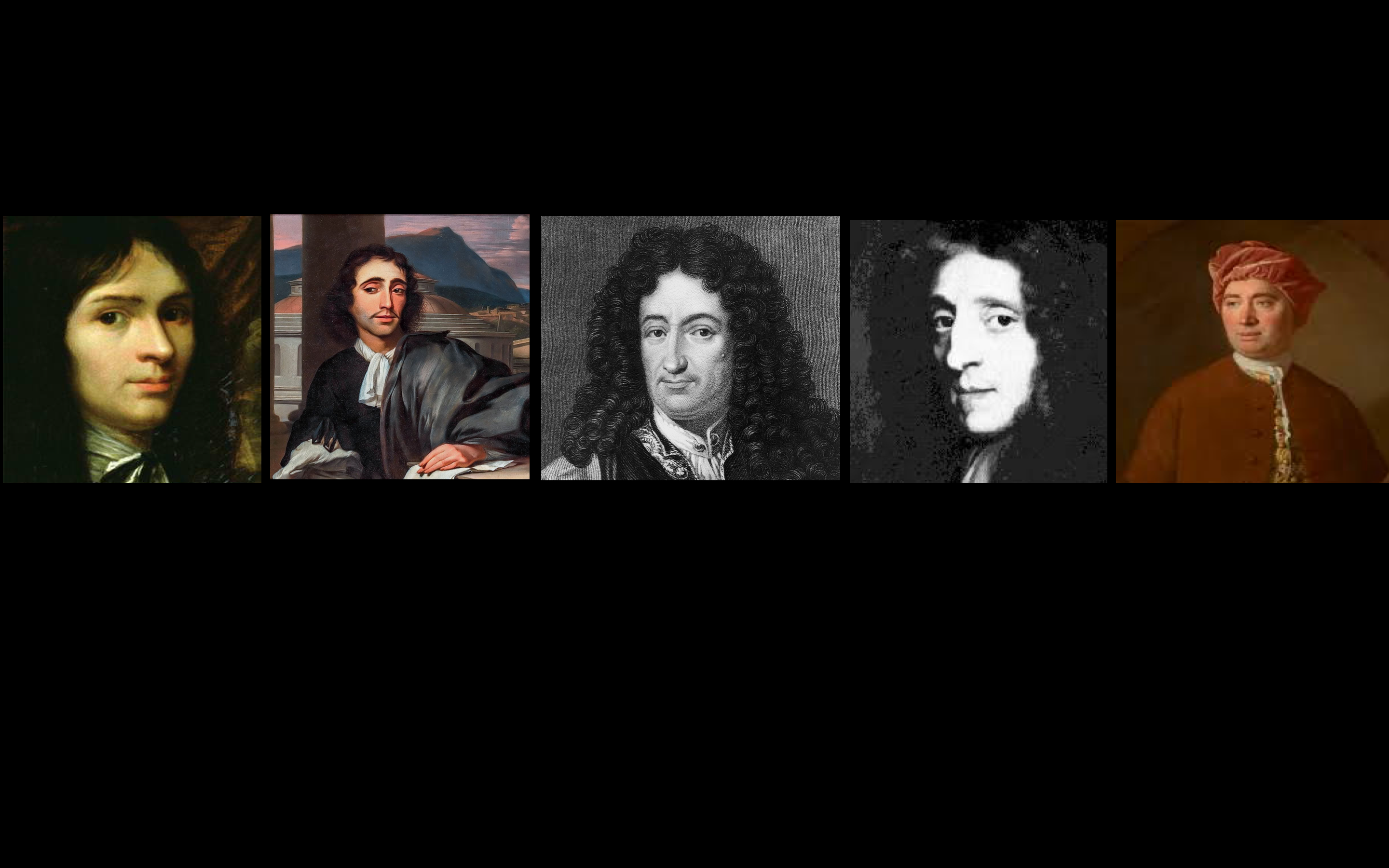
This module will introduce students to debates that
lay the foundation for modern philosophy. Starting with a close reading of
Descartes' Meditations, we explore responses from key thinkers in the
rationalist and empiricist traditions.
In
the wake of Descartes's philosophy, the 'new philosophy' sets out to provide a
foundation of the human project by stressing the power of human intellect
unaided by divine revelation. The "Continental Rationalists", Spinoza
and Leibniz, share Descartes conviction that the human mind could acquire
substantive knowledge of the world on the basis of reason alone. Despite this
shared conviction, however, there are profound differences between these
individual philosophers. The "British Empiricists" thinkers, Locke
and Hume, start from the shared conviction that knowledge of the world cannot
be attained without recourse to sense experience. In the case of Locke, this
leads to a more modest account of the scope of human knowledge; with Hume it
leads to scepticism that throws the quest for knowledge into radical doubt.
- Module Supervisor: Steven Gormley